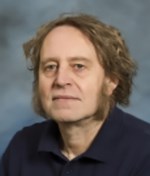SC - 05 Petrophysics and Geophysics Relevant to CO₂ Enhanced Oil Recovery
Society of Exploration Geophysicists
Saturday, 24 July – Sunday, 25 July 2021, 8:00 a.m.–5:00 p.m. | Houston, Texas
Who Should Attend
This course is designed to be followed by anyone with a broad geoscience background: no specific detailed fore-knowledge is required, although a familiarity with geophysical, exploration and drilling terminology will be useful.
Objectives
- Understand the physics relevant to CO2 and its phases. Understand what supercritical CO2 is and why it is used in EOR. Understand basic injector/producer geometries used in EOR.
- Identify the physics and petrophysics relevant to CO2 detection in all geophysical methods. Understand the ambiguities and potential pitfalls of the various geophysical methods applied to CO2 monitoring and EOR.
- Review the importance of a thorough understanding of fracture, fracture geometries and the importance of these data to EOR sweep efficiency.
- Recognize the methods previously used, and know from direct review of geophysical interpretations, for CO2 subsurface imaging and monitoring.
- Estimate the most useful geophysical techniques relevant to a variety of potential scenarios at hypothetical CO2 monitoring and EOR sites.
Course Content
In this SEG eight hour course the basic physics relevant to CO₂ are presented, including the descriptions of gas, liquid and super critical phases (scCO₂).
Enhanced oil recovery (EOR) was a natural development in the production of hydrocarbons. In this course topics relevant to the utilization of CO₂ to enhance oil recovery are presented. CO₂ is an especially appealing EOR injection agent. In this SEG two-day course the basic physics relevant to CO₂ are presented, including the descriptions of gas, liquid and super critical phases (scCO₂). EOR-CO₂ sites will be reviewed with respect to monitoring technologies. In addition to EOR-CO₂, in several sites, natural production of hydrocarbons contains a significant proportion of CO₂, which is separated and then reinjected into other formations, or the producing formation (for example, to maintain formation pressure). Successful methods of geophysical monitoring of these injections will also be reviewed and summarized. The scCO₂ phase is a material state in which there is no surface tension, somewhat like a gaseous state; scCO₂ has an approximately fluid density and can diffuse through material and fluids, interacting with them. Surprisingly scCO₂ is commonly used to extract essences from fruits, coffee beans and oil from the ground!
This SEG two-day course is then extended to a description of the physical properties of CO₂, stability ranges, and moduli. These are then related to geophysical methods that have been used successfully to monitor, verify, and account for subsurface EOR-CO₂ in geophysical studies. Successful geophysical monitoring technologies reviewed include microgravity, electromagnetic, satellite based surface deformation monitoring, 3D and 4D reflection seismic based methods, vertical seismic profiling (VSP). At the conclusion of the SEG two-day course the participant should have an solid understanding and introduction to the material properties of scCO₂, petrophysical changes expected from the presence of CO₂ as a pore filling phase in the subsurface, the scale of EOR-CO₂, and a thorough review of geophysical methods that have been successfully applied to monitoring subsurface CO₂.
Fees
- Professional Members
- $250
- Professional Non-Members
- $300
- Students
- $125
- Class Limit
- Professionals 35
- Students 5
- Educational Credits
- .8 IACET accredited CEU
- Fee Includes
- Course Notes
- Access to recording
Instructor

William Harbert completed his MS in Exploration Geophysics and Ph.D. in Geophysics at Stanford University. His undergraduate degrees were in Mathematics/Geology (double major) and Geophysics from Western Washington University, followed by a post-doctoral appointment with the National Research Council (NRC). Since then has worked as a Professor of Geophysics at the University of Pittsburgh. In addition to research in geophysical monitoring of subsurface CO₂, he has been a United States Department of Energy ORISE Research Associate and a Resident Institute Fellow of the National Energy Technology Laboratory-Institute for Advanced Energy Solution (IAES). He was a member of the Scientific Advisory Board for the In Salah CO₂ Injection Project facilitated by British Petroleum and was an EGS Demonstration Project Phase reviewer. As an elected representative for District 4 of the Society of Exploration Geophysicist he is active in the applied geophysical community, a founding member of the Geophysical Society of Pittsburgh and is a certified petroleum geophysicist (American Association of Petroleum Geologists, Division of Professional Affairs). He has co-chaired numerous American Geophysical Union sessions focused on geophysical monitoring of Geological Carbon Storage, and was the 2013 AAPG ACE Geophysics chair. He has also served on the Pennsylvania Governor’s Commission on Mine Voids and Mine Safety. He has been most active in CO₂ geophysical monitoring projects and conducted research activities in petrophysics, reflection seismic, hydrofracturing monitoring, induced seismicity and the analysis of cross well seismic tomography.
Fees
Venue

George R. Brown Convention Center
1001 Avenida De Las Americas
Houston,
Texas
77010
United States
(713) 853-8000